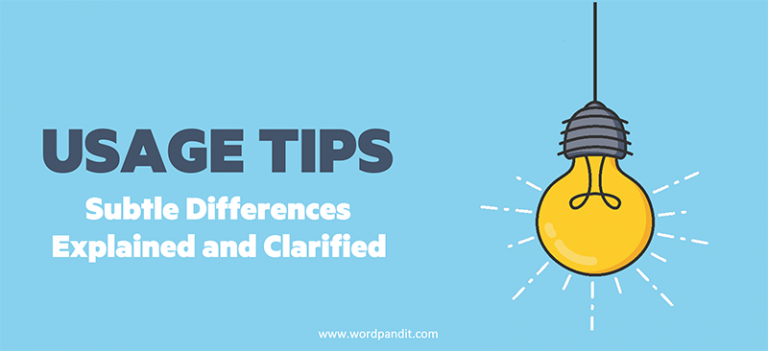Apposite vs. Opposite: Clearing Up the Confusion ✨
Have you ever paused in the middle of a conversation because you weren’t sure if “apposite” or “opposite” was the right word? 🤔 You’re not alone. These two words might sound similar, but their meanings are worlds apart. 🌍 Getting them mixed up can lead to some pretty funny misunderstandings—imagine saying something is “completely apposite” when you meant to say it’s the exact reverse! 😂 Let’s take a moment to clear up the confusion so you can use each word confidently and correctly. ✅
These two words are a classic example of how the English language can trip us up. 😅 On the surface, “apposite” and “opposite” seem like they might be related or even synonyms, but in reality, they couldn’t be more different. When you get these words right, it shows a great level of precision in your language, and that’s always a good thing whether you’re in a casual chat or a formal presentation. 👍 So, let’s dive a little deeper and make sure you can master these two words and impress others with your articulate language skills. 💡
What Do They Mean? 📖
- Apposite: This word means something is highly relevant or fitting for a situation. ✅ Think of it as describing something that perfectly matches the context. For example, “His comment was apposite to the discussion.” Pronounced as ‘a-pə-zət’ 📢, it’s a word that you can use when something is spot-on. 🎯
- Etymology: “Apposite” comes from the Latin word appositus, meaning “placed near,” which emphasizes relevance and appropriateness. 🧐 It describes something that fits nicely or is positioned exactly where it should be.
- Opposite: This word means something completely contrary or on the other side. 🚫 Pronounced as ‘a-pə-sɪt’ 📢, it’s used when two things are as different as can be. For example, “The two brothers have opposite personalities.” ↔️
- Etymology: “Opposite” comes from the Latin oppositus, meaning “set against.” ⚔️ It describes contrast and conflict, helping us understand how opposite things stand in stark difference from one another.
Usage Examples to Make It Clear 📝
Apposite: “The CEO’s apposite remarks about company culture resonated with the audience.” 👏 (In this case, the remarks were highly fitting for the topic.) Another example: “Her apposite analogy helped everyone understand the complex topic.” 💡
Opposite: “The new policy is the opposite of what we were expecting.” 🤯 (This shows the policy was entirely different from expectations.) Another example: “Their personalities were opposite, one being very introverted and the other extremely outgoing.” 😄😐
Synonyms and Antonyms 🔄
- Apposite: fitting, appropriate, relevant, suitable, apt ✅
- Opposite: contrary, different, opposing, conflicting, antithetical 🚫
A Comparison: The Differences Explained 🤔➡️😮
“Apposite” describes something that fits perfectly—a comment, action, or choice that matches the situation. 🧤 “Opposite,” on the other hand, is about being contrary or entirely different, like puzzle pieces that don’t belong together. ❌
When something is apposite, it supports and complements; when something is opposite, it creates division. ⚖️
Contextual Usage 🖋️
“Her choice of words was apposite, bringing clarity to the discussion, while his arguments were the opposite of what the data showed.” 📊 This highlights the precision that comes with using the right words in context.
Mnemonic to Remember 🧠
- Apposite: Think of “Apt” + “Position” to remember it means something fitting and appropriate. 📱
- Opposite: Think “Oppose” to remember it indicates contrast. 🚫 Imagine two people standing face-to-face, opposing each other. 👥
Related Word Pairs 🔗
If you found “apposite vs. opposite” confusing, you might also want to explore “affect vs. effect,” “compliment vs. complement,” or “elicit vs. illicit.” 🤯 These pairs are equally tricky but crucial for clear communication. ✍️
Wrap-Up: The Key Difference 🎯
Now you know: “Apposite” is for things that are fitting and appropriate, and “Opposite” is for things that are entirely different. ✅ Even if you mix them up, don’t worry—it’s part of learning! 😊 Practice using these words in context, and soon enough, they’ll become second nature. 🔄 Mastering subtle differences like these can enhance your communication skills and make your writing more precise. 🗣️✍️
Test Your Knowledge: Apposite & Opposite Quiz 📋✨
1. The speaker’s remarks were highly ___ to the occasion. 🎤🎉
2. True or False: “Opposite” can mean something highly relevant. ❓❌
3. He stood on the ___ side of the debate, challenging all the proposals. 🗣️💼
4. Which word means “fitting” or “appropriate”? 🎯✔️
5. Identify the synonym for the word “Apposite.” 🔍
6. The two politicians had completely ___ views on economic policy. 🏛️📊
7. True or False: “Apposite” can be used to describe something that is irrelevant. ❓❌
8. His statement was the ___ of what we were expecting, completely contradicting his earlier stance. 🌀🤔













